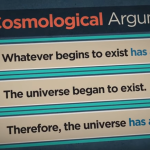Was Mother Teresa Really an Atheist?
by Stephen Bullivant
Filed under Atheism, Saints

As is now well known, Mother Teresa of Calcutta suffered severe spiritual afflictions through much of her remarkable life: “This terrible sense of loss – this untold darkness – this loneliness – this continual longing for God.” These first emerged in 2001, but were only fully disclosed with the 2007 publication of her private writings and correspondence in Come Be My Light, edited by Fr Brian Kolodiejchuk MC, the postulator of her cause for canonization.
In these writings, Teresa describes to her confessors and spiritual directors how over long periods, ultimately stretching to over 40 years with only fleeting respites:
"Darkness is such that I really do not see – neither with my mind nor with my reason. – The place of God in my soul is blank. – There is no God in me. – When the pain of longing is so great – I just long & long for God – and then it is that I feel – He does not want me – He is not there…"
Given these startling and graphic admissions from one who whose canonization on Sunday – 19 years after her 1997 death – will be one of the swiftest of modern times, the level of popular and media interest has been considerable. Understandably, Teresa’s words have been widely interpreted as proving her to be an atheist, pure and simple.
The truth is, as ever, far from being so straightforward. And yet there is a qualified, analogical sense in which one can indeed speak of Teresa’s experiential “atheism”. This is the “atheism” of one who acutely, and painfully, perceives God’s seeming absence. Somewhat similar experiences, of one sort or one another, are far from unprecedented within the Christian spiritual tradition. Some of the greatest of saints – John of the Cross, Gemma Galgani, Paul of the Cross, Thérèse of Lisieux, Padre Pio – all reported periods of spiritual desolation or abandonment.
Among the many striking things about Teresa’s “atheism”, particularly noteworthy is quite how early in life she was afflicted by such darkness. While still a Loreto Sister in 1937 – and, indeed, a full nine years before the “call within the call” which would ultimately lead to her founding the Missionaries of Charity in 1950 – she wrote to her former confessor in Albania:
"Do not think that my spiritual life is strewn with roses – that is the flower which I hardly ever find on my way. Quite the contrary, I have more often as my companion ‘darkness’. And when the night becomes very thick – and it seems to me as if I must end up in hell – then I simply offer myself to Jesus. If He wants me to go there – I am ready – but only under the condition that it really makes him happy."
This early statement is far from being as detailed, or as heart-rending, as some of her later ones would be. However, we do see here one of the hallmarks of Teresa’s “atheism”, which will endure alongside even her most tortured avowals of faithlessness to come: an abiding trust in, and abandonment to, the will of God.
Arguably, Teresa’s strongest and most eloquent statement of her darkness, and of the intense suffering which it caused her, comes from 1959:
"Lord, my God, who am I that You should forsake me? […] I call, I cling, I want – and there is no One to answer – no One on Whom I cling – no, No One. – Alone. The darkness is so dark – and I am alone. – Unwanted, forsaken. – The loneliness of the heart that wants love is unbearable. – Where is my faith? – Even deep down, right in, there is nothing but emptiness & darkness. – My God – how painful is this unknown pain. – It pains without ceasing. – I have no faith. I dare not utter the words & thoughts that crowd in my heart – & make me suffer untold agony. So many unanswered questions live within me – I am afraid to uncover them – because of the blasphemy. – If there be God, please forgive me. – Trust that all will end in Heaven with Jesus. – When I try to raise my thoughts to Heaven – there is such convicting emptiness that those very thoughts return like sharp knives & hurt my soul."
And yet, even here, in the midst of a string of prima facie atheistic statements, one cannot escape from the fact that one is reading a text that is consciously, and unmistakably, a prayer. This much is especially clear from her concluding paragraph:
"If this brings You glory, if You get a drop of joy from this – if souls are brought to You – if my suffering satiates Your Thirst – here I am Lord, with joy I accept all to the end of life – & I will smile at Your Hidden Face – always."
In precisely the same way that Jesus's address to “My God, my God” undermines his own declaration of having been “forsaken” (Mark 15.34), Teresa’s paradoxical choice of genre undercuts any unthinking identification of her as an unbeliever.
This realization is not in any way intended to diminish the force of her harrowing experiences. Having at other times in her life felt Jesus’s joyful and loving presence, his subsequent and sustained absences from her interior, spiritual life were all the harder to bear. The same is true, of course, for some of the other mystics mentioned above.
The 16th-century Carmelite poet, St John of the Cross, described his own experiences in similarly evocative terms:
"When this purgative contemplation oppresses a man, he feels very vividly indeed the shadow of death, the sighs of death, and the sorrows of hell, all of which reflect the feeling of God’s absence, of being chastised and rejected by Him, and of being unworthy of Him, as well as the object of his anger. The soul experiences all this and even more, for now it seems that this affliction will last forever."
John famously termed his sense of godforsakenness the “dark night of the soul”, a phrase that is commonly applied to all such episodes within the Christian tradition.
It is worth noting, however, that Teresa herself denied that her own, seemingly similar experiences, were accurately so designated. For Teresa, her own abandonment was not for the purposes of her spiritual purification (as she understood “dark night” to imply), but was instead both an identification with Christ’s passion, and a form of solidarity with the unwanted, unloved, abandoned, and bereft.
What is beyond doubt, though, is that it was her thirst for Christ that motivated and sustained her courageous life of service and devotion. Not finding him in her interior life, she sought out Christ both on the altar and “in His distressing disguise”. Hence as she once put it:
"To those who say they admire my courage, I have to tell them that I would not have any if I were not convinced that each time I touch the body of a leper, a body that reeks with a foul stench, I touch Christ’s body, the same Christ I receive in the Eucharist."
For as Teresa herself once told the superiors of her communities, without alluding to her own experience: “It often happens that those who spend their time giving light to others remain in darkness themselves.”
Related Posts
Note: Our goal is to cultivate serious and respectful dialogue. While it's OK to disagree—even encouraged!—any snarky, offensive, or off-topic comments will be deleted. Before commenting please read the Commenting Rules and Tips. If you're having trouble commenting, read the Commenting Instructions.












